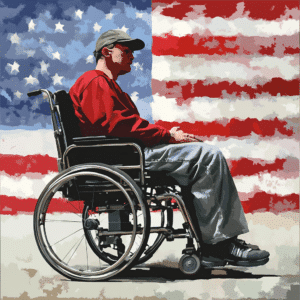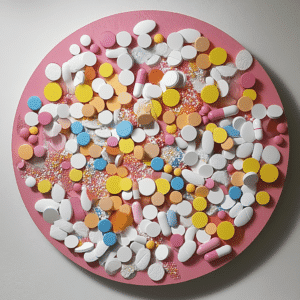The Journey of Mothers in Recovery
Recovery from addiction is no easy feat, yet the resilience and strength displayed by mothers in this journey are nothing short of inspiring. Mothers in recovery not only fight to regain control over their lives but also strive to create a stable, nurturing environment for their children. This journey showcases the power of a mother’s love and determination. It highlights their ability to transform adversity into opportunities for growth and healing.
These exceptional mothers tackle recovery head-on by attending meetings, making calls, and reaching out to others on the same journey. They immerse themselves in communities where they foster long-lasting friendships, ensuring they never have to feel alone. This interconnected support network is fundamental to sustainable recovery, allowing mothers to build unshakable foundations for themselves and their families.
Recovery can be daunting, but countless mothers prove that with the right support, it is possible to thrive. Here, we explore various aspects of this remarkable journey, fueled by unwavering resilience and perseverance.
Top 7 Pillars of Support: Real-Life Examples of Mothers in Recovery
Jane, a mother of two from Seattle, found solace in local support groups like “Parents in Recovery”. These community groups offer essential emotional and psychological support, helping mothers like Jane feel less isolated on their journey while providing practical assistance in parenting during recovery. As Jane recounts, “The group became my lifeline, my extended family. They helped me navigate the challenges of sobriety and motherhood.”
Lisa, a single mother from Boston, discovered her path through consistent professional counseling at the Massachusetts General Hospital Recovery Program. Counseling provided her with coping mechanisms to manage stress and emotional triggers, ensuring she stayed on the path of recovery. For Lisa, this ongoing support has been crucial in caring for her teenage son amidst the daily challenges of sobriety.
Maria from Los Angeles turned to mindfulness and meditation to stay centered and focused. Using apps like Headspace, she incorporated these practices into her daily routine. This greatly reduced her anxiety and improved her mental clarity, enhancing her ability to parent effectively. Mindfulness became a cornerstone of her recovery, allowing her to remain grounded and present for her children.
Anna, a mother of three from Denver, improved her recovery journey through regular physical activities. She joined a local yoga studio, “Harmony Yoga”, and engaged in morning runs. These activities boosted her physical health and provided a positive outlet for stress and anxiety. For Anna, fitness was not just a hobby but a vital part of her recovery strategy.
Rachel from San Francisco enrolled in Stanford’s Continuing Studies Program to pursue a degree in psychology. Education gave Rachel a sense of purpose and accomplishment, playing a critical role in her recovery. Her academic pursuits not only enriched her life but also enabled her to provide a brighter future for her children.
Sarah from Chicago launched a successful artisanal soap business called “Pure Heart Soaps”. Employment provided her with financial stability and a sense of pride and self-worth. These are vital ingredients for sustaining long-term recovery. Sarah’s journey demonstrates the importance of financial independence as a pillar of support for mothers in recovery.
Emily from New York City found solace and strength within her local church community. Participating in faith-based support groups and services helped her build a solid spiritual foundation. This provided the moral and emotional support necessary to stay sober and raise her children with a value-based upbringing. Emily’s story highlights the transformative power of spiritual support in the recovery process.
| Aspect | Description |
| Foundation Building Activities | – Attending recovery meetings – Making regular phone calls – Reaching out to support networks |
| Key Components of Recovery | – Mutual support – Socialization – Long-lasting friendships – Empowerment |
| Benefits | – Never feeling alone – Sustainable recovery – Personal growth |
| Role of Mutual Self-Help Groups | – Aid in recovery from SUDs – Facilitate self-exploration – Provide peer support |
| Complementary Nature | – Not professional treatment, but complementary to it – Enhances overall support systems |
| Outcome | – Strong social network – Empowered and self-sufficient mothers – Steady and sustainable recovery |
The Role of Extended Family in Supporting Mothers in Recovery
The inclusion of extended family members in the recovery journey cannot be overstated. Grandparents, siblings, and other close relatives often play pivotal roles in supporting the mother and her children. Extended families provide emotional and practical support, such as childcare and companionship, easing the demands on recovering mothers.
Educating family members about the recovery process is vital. It helps them understand the challenges and triumphs involved and builds a network of resilience around the mother and her children. This interconnected support system greatly enhances the chances of a successful and sustained recovery. Community-based initiatives can facilitate this understanding by offering family education programs and support groups.
Strategies for Long-Term Success and Stability
To ensure long-term success and stability, mothers in recovery should adopt several key strategies:
Personal Stories Highlight Resilience and Hope
Personal stories of resilience, such as that of Jamie Lee Curtis, who has publicly shared her recovery journey, offer inspiration and hope to mothers fighting similar battles. Curtis, now celebrating over two decades of sobriety, emphasizes the importance of seeking help and remaining committed to the path of recovery.
These stories underscore the power of persistence, community, and self-belief. They provide a beacon of hope for all mothers in recovery, demonstrating that overcoming addiction is possible with the right support and determination.
The Strength of a Mother’s Love
Mothers in recovery showcase incredible fortitude and resilience. By drawing on community support, professional guidance, mindfulness, education, and unwavering self-belief, they construct unshakable foundations not only for their own lives but for the enrichment and stability of their children’s futures. The collective strength derived from shared experiences and the relentless pursuit of a better life testifies to the remarkable power of a mother’s love and determination. These stories serve as a beacon of hope and a guide for all mothers on the path to recovery, illuminating the profound impact they can achieve both inside and outside their homes.
For more insights and resources on Parenting with addiction visit Mothersagainstaddiction.org.
Mothers in Recovery Build Unshakable Foundations
Triumphs and Challenges
Mothers in recovery are strong. They pull from deep reserves of strength to guide their families through dark times. Addiction doesn’t just affect the individual; it challenges the entire family structure. Whether it’s about understanding the intricate relationship between motherhood And addiction or navigating the added pressures faced by single mothers, the path to recovery is a journey of resilience and courage. Single moms often juggle jobs, household responsibilities, and their recovery tasks simultaneously, making their triumphs even more impressive.
Unexpected Inspirations
It’s not always celebrities or icons who inspire mothers in recovery, but everyday heroes. Take Michael Burham, for example. While he might not seem like your typical role model, his story of perseverance and transformation can be a beacon of hope for those grappling with addiction. Tales like these remind us that recovery journeys can stem from the unlikeliest places, galvanizing moms everywhere to strive for a brighter future. Even battling their turmoil, they find a flicker of hope to guide them through.
Embracing Grief and Moving Forward
Unfortunately, not all stories have happy endings, and some mothers face the unbearable loss of a child to addiction. It’s crucial to process grief, symbolized so deeply by the image of a mourning death candle. Honoring lost ones can provide a gut-wrenching yet essential step towards healing. Grieving doesn’t mean forgetting; it means cherishing memories and forging a new path in life.
Fun Facts: Unbreakable Spirits
Recovery might be a serious topic, but there are also heartwarming and surprising stories wrapped up within it. Did you know the Biggest mom title was once an affectionate reference in mother-child recovery circles for the mother who brought the most impactful change in her community? Not a title many would race for, but it underscores how communities celebrate those making a significant difference against all odds.
Moreover, ever thought about unexpected intersections in life? An ex-soccer mom might find herself reviewing the Psv Eindhoven Vs Sevilla fc Lineups, sharing this common interest with her child post-recovery. These bonding moments can foster a renewed sense of connection and shared enthusiasm, proving that new chapters can be written, no matter the prior struggles.
The Lighter Side: Trivia and Tidbits
On a lighter note, have you ever come across quirky, unexpected sources of inspiration? Mothers in recovery sometimes share tales of celeb crushes or light-hearted gurus, even figures from off-beat news articles like Jailbaitteens. While not traditional sources of motivation, integrating humor into recovery can make the journey less rough. Embracing a bit of levity reminds everyone involved that life, despite its trials, has moments worth smiling about.
What is a recovery mom?
A recovery mom is a mother who’s committed to overcoming addiction and building a healthy, substance-free life. She engages with support groups, makes connections, and surrounds herself with others on the same path, creating a robust network that helps her stay strong and feel less alone.
How do you learn to love yourself in recovery?
Loving yourself in recovery starts with self-compassion and understanding that recovery is a journey. Attending meetings, engaging in self-help groups, and leaning on supportive friends can help you explore your emotions and recognize your worth. It’s about small steps and celebrating progress.
What is a recovery support group?
A recovery support group is a mutual self-help gathering where people share experiences and offer peer support. It’s not professional therapy, but it plays a crucial role by providing a community of understanding and encouragement that bolsters individual recovery efforts.
How important is family support in recovery?
Family support is incredibly important in recovery as it can provide emotional stability, motivation, and a sense of belonging. Families can offer a nurturing environment and help reinforce the values and behaviors needed for sustained recovery.
What is depleted mother syndrome?
Depleted mother syndrome refers to the physical and emotional exhaustion many mothers feel as they try to balance the demands of parenthood, work, and personal life. It’s characterized by feeling overwhelmed, unable to put oneself first, and often leads to burnout.
What is a trauma mom?
A trauma mom is a mother who has experienced significant psychological trauma, which can impact her parenting and overall well-being. This trauma could stem from various sources, including abuse, loss, or other deeply distressing events.
What are the 7 steps to loving yourself?
The seven steps to loving yourself include practicing self-care, setting boundaries, practicing gratitude, forgiving oneself, developing a positive self-image, seeking support, and engaging in activities that bring joy and fulfillment.
How do I start loving myself again?
Starting to love yourself again involves taking small, consistent actions toward self-care and self-compassion. Practice positive self-talk, focus on your strengths, seek supportive communities, and invest time in activities that make you feel good about yourself.
How do I start loving my body again?
To start loving your body again, aim to appreciate what your body can do rather than just how it looks. Engage in activities that make you feel strong and healthy, practice mindful eating, and avoid comparing yourself to others. Celebrate the unique aspects of your body.
What are the four types of recovery?
The four types of recovery are physical, mental, emotional, and social. Each type focuses on healing different aspects of a person’s life, whether it’s the physical body, mental health, emotional well-being, or social relationships.
What are the 5 stages of recovery mental health?
The five stages of recovery in mental health are pre-contemplation, contemplation, preparation, action, and maintenance. Each stage reflects a different level of readiness and engagement in the recovery process.
What three elements are necessary for recovery?
The three necessary elements for recovery are hope, a supportive network, and essential coping skills. Together, these elements help an individual withstand challenges and sustain long-term recovery.
Why is staying connected important in recovery?
Staying connected during recovery is vital because it provides ongoing support, accountability, and a sense of community. Being part of a supportive network helps you stay motivated and less isolated.
What is the role of the family in a relapse?
When it comes to relapse, the family’s role is to provide a non-judgmental, supportive environment, help recognize early signs of relapse, and encourage re-engagement with treatment or recovery strategies.
How does family help patients recover?
Families help patients recover by offering emotional support, helping to implement recovery plans, and providing a stable, caring home environment. Their involvement can make a significant difference in the recovery journey.
What is the recovery period for a mother?
The recovery period for a mother varies depending on her specific circumstances, including the nature of her addiction and her personal support system. It’s a unique journey and can take months or even years.
Who is a recovery nurse?
A recovery nurse specializes in helping patients navigate the journey of recovery from various health issues, including substance use disorders. They provide medical care, support, and education to help patients achieve long-term recovery.
What is recovery in pregnancy?
Recovery in pregnancy involves managing both the health of the expectant mother and the developing baby, especially if the mother is recovering from substance use. It’s a period that requires careful medical supervision and support.
What are the four stages of recovery?
The four stages of recovery are withdrawal, honeymoon, the wall, and adjustment. Each stage represents a different phase of the recovery process and presents unique challenges and milestones.




























